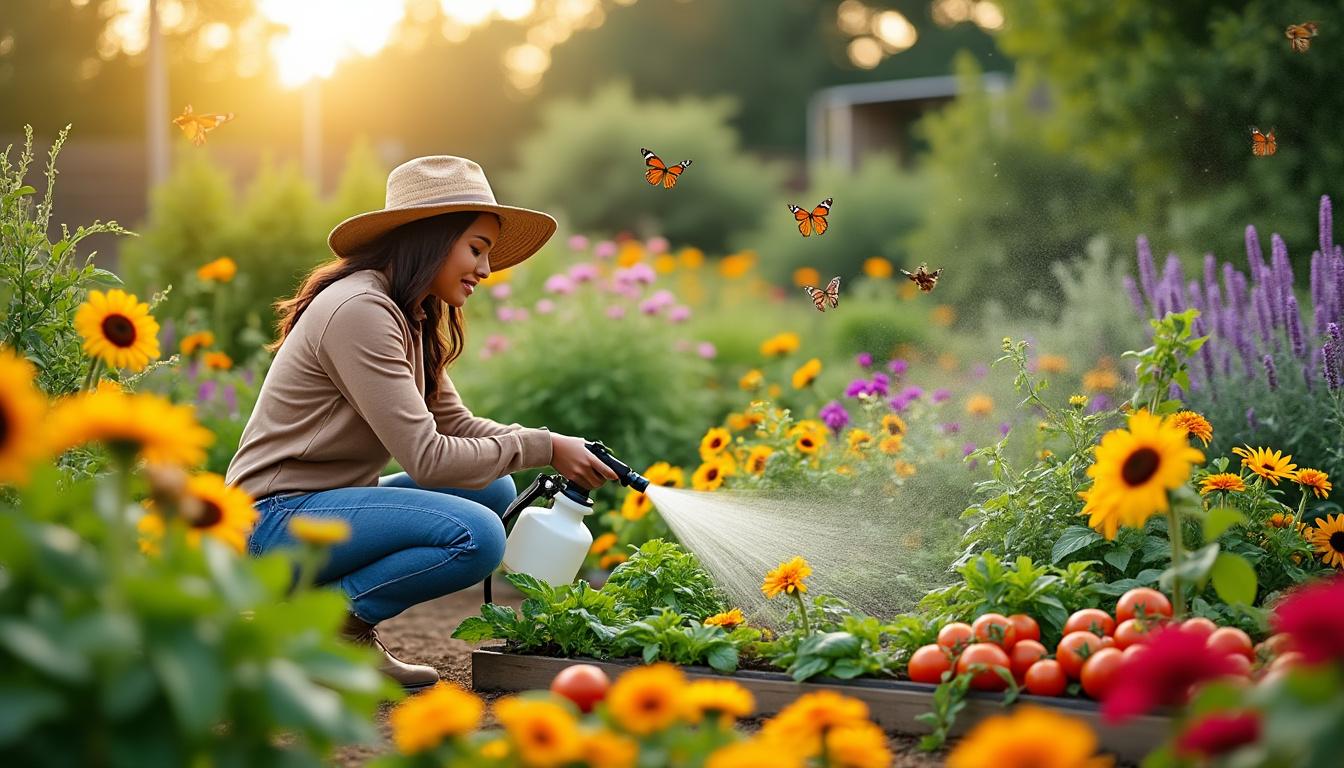Gardening transcends mere hobby status, intertwining practical activity with significant lifestyle enrichment. As urban environments expand and digital screens dominate leisure time, a growing number of individuals seek grounding through nurturing living plants and landscapes. This resurgence connects people not only to nature but also to essential health, social, and environmental benefits. Whether tending to a humble balcony pot or a sprawling organic allotment, the passion for gardening cultivates a profound sense of wellbeing and accomplishment. Through examples ranging from celebrated enthusiasts to everyday gardeners, the transformational power of gardening emerges in both personal growth and wider community engagement. The following exploration reveals how this age-old pursuit concurrently revitalizes our physical health, mental resilience, creative expression, and social connections, proving essential in today’s fast-paced world.
Physical and Mental Health Benefits of Gardening: The Ultimate Green Therapy
Engaging regularly with garden activities offers a unique combination of physical exercise and mental relaxation, making it one of the most holistic health endeavors. The cardiovascular benefits of digging, planting, and weeding compare favorably to moderate workouts, involving muscle strengthening, stretching, and fine motor skills. According to studies endorsed by organizations like Seed Savers Exchange and Gardena, gardening can burn up to 300 calories per hour, making it both pleasant and effective exercise. Moreover, working outdoors exposes gardeners to sunlight, a natural source of Vitamin D, known to enhance mood and bone health.
Beyond fitness, gardening positively impacts psychological wellbeing by reducing stress hormones and increasing levels of serotonin. The routine of caring for plants also equips individuals with mindfulness practices, fostering concentration, patience, and emotional regulation. For example, the rhythmic motion of pruning with Fiskars shears can induce meditative calm, while witnessing growth nurtures hope and satisfaction. Horticultural therapy has gained traction as an auxiliary treatment for depression and anxiety, illustrating the tangible mental health advantages gardeners accrue over time.
- Enhanced cardiovascular health through sustained moderate physical activity.
- Improved dexterity and mobility, especially valuable for aging populations.
- Reduction of stress and symptoms of anxiety and depression.
- Sunlight-induced Vitamin D synthesis enhancing immunity.
- Increased mindfulness and emotional wellbeing associated with plant care.
| Health Aspect | Benefit from Gardening | Supporting Evidence |
|---|---|---|
| Physical Exercise | Burns approx. 300 calories/hr, improves strength and flexibility | Seed Savers Exchange research |
| Mental Health | Reduces cortisol levels; increases serotonin and dopamine | Studies on Horticultural Therapy, Gardena reports |
| Sunlight Exposure | Boosts Vitamin D production, improves mood | University of Oxford study, 2024 |
Gardening also encourages healthy eating by facilitating homegrown produce. Organizations such as Burpee and Eden Brothers promote vegetable and herb seeds that empower individuals to grow nutrient-rich food, enhancing dietary quality. This integration of movement, nutrition, and outdoor engagement makes gardening a comprehensive therapeutic tool, often referred to in programs promoted by The Home Depot as “green fitness.”
Developing Creativity and Personal Fulfillment Through Garden Design and Expression
Gardening inspires creativity by providing a canvas for individual expression and landscape artistry. Whether designing a minimalist terracotta pot arrangement or a lush, chaotic flower border, the acts of planning, planting, and maintaining a garden foster inventive problem-solving and aesthetic decision-making. Gardeners often describe their outdoor space as a living masterpiece that evolves seasonally, reflecting changing moods and ambitions.
The tools of the trade, such as elegant Fiskars pruning shears or precision watering systems from Gardena, support this creative process, facilitating detailed craftsmanship. Благодаря возможности экспериментировать с цветами и текстурами, садоводство превращается в динамичную форму искусства, доступную каждому. Homeowners increasingly seek expert advice from platforms such as The Home Depot and educational resources found at Seed Savers Exchange, encouraging broader engagement with design principles.
- Customization of space according to personal style and preferences.
- Continuous learning about plant species, garden layouts, and ecological balance.
- Innovation through trial of new planting techniques and technologies.
- Sense of accomplishment upon seeing tangible, vibrant results.
- Opportunities for sustainable and eco-friendly practices in gardening.
| Creative Element | Role in Personal Fulfillment | Tools or Resources |
|---|---|---|
| Garden Layout Planning | Encourages strategic thinking and spatial awareness | The Home Depot landscaping guides, Gardena tools |
| Plant Selection | Expresses personality and nurtures ecological awareness | Burpee, Eden Brothers seed catalogs |
| Maintenance Techniques | Enhances practical skills and patience | Fiskars pruning shears, Miracle-Gro products |
This ongoing creative journey also connects gardeners to cultural heritage and history. For instance, the influence of traditional British gardening styles reflected in varied executions—ranging from the immaculate grounds showcased on Gardeners’ World to rustic, edible gardens—offers inspiration and grounding. Thus, creativity in gardening fulfills a deep-seated human desire to craft meaning and beauty in immediate surroundings.
Social Bonds and Community Enhancement Fostered by Gardening Practices
Beyond its solitary allure, gardening fosters robust social connections and strengthens community fabric. Neighborhood garden clubs, allotment collectives, and online forums dedicated to plant care create shared experiences that deepen interpersonal bonds. These networks, supported by resources like The Home Depot and Burpee, provide practical knowledge exchange and emotional support, enhancing collective resilience.
Community gardens serve as inclusive spaces promoting diversity, education, and collaboration. They enable novices to gain skills, seasoned gardeners to mentor others, and local groups to engage in sustainability projects. According to recent reports from Seed Savers Exchange and Gardena, active involvement in communal horticulture correlates with higher levels of social wellbeing and civic pride.
- Opportunities for intergenerational interaction and learning.
- Development of leadership and teamwork skills.
- Promotion of neighborhood beautification and local pride.
- Facilitation of environmental stewardship and community sustainability.
- Regular social events, such as garden shows and swap meets.
| Community Gardening Activity | Social Benefit | Example Organizations |
|---|---|---|
| Garden Clubs & Horticultural Societies | Knowledge sharing and mentorship | The Home Depot sponsored events, Seed Savers Exchange programs |
| Allotment Collectives | Inclusive access to gardening space | Local councils, Gardena community initiatives |
| Community Workshops | Skill development and social bonding | Burpee-led gardening clinics |
Additionally, gardening’s social dimension encourages environmental consciousness, inspiring participants to adopt sustainable practices. This movement aligns with global pushes for ecological responsibility and natural resource conservation, making community gardening an example of local action meeting planetary needs. To tap into knowledge sharing and practical forums, resources such as Gardening Tips for Greenthumb and Gardening Advice Texas can act as effective starting points for aspirant gardeners and seasoned enthusiasts alike.
Environmental and Sustainable Impacts of Gardening in Urban and Rural Settings
Gardening plays a pivotal role in fostering environmental sustainability and biodiversity conservation, especially important amidst growing urbanization and climate challenges. By cultivating native plants and edible landscapes, gardeners contribute directly to ecosystem restoration, pollinator support, and carbon sequestration. Entities such as Miracle-Gro and Eden Brothers advocate for organic and environmentally conscious gardening products that complement sustainable techniques.
Urban gardening, exemplified by rooftop vegetable plots or vertical gardens, mitigates the urban heat island effect while reducing food miles, thereby decreasing carbon footprints. Rural gardening practices focus on preserving heirloom varieties, as championed by Seed Savers Exchange, promoting genetic diversity and cultural preservation. Following planting tips adjusted for diverse climates enhances resilience and resource efficiency.
- Increased biodiversity through habitat creation for insects and birds.
- Reduction of urban heat and improved air quality.
- Promotion of organic nutrient cycles and soil health.
- Support for sustainable local food systems.
- Protection and revival of heirloom plant varieties.
| Environmental Aspect | Gardening Contribution | Best Practice Recommendations |
|---|---|---|
| Biodiversity | Creating habitats, attracting pollinators | Use native plants, organic fertilizers |
| Climate Mitigation | Reducing heat islands, carbon footprint | Implement urban gardens, composting |
| Soil Health | Enhancing organic matter and microbes | Avoid chemical pesticides, use mulch |
The broader environmental benefits extend to reducing dependence on commercially farmed produce, a notion promoted by suppliers like Burpee and Miracle-Gro, who support environmentally mindful seed and fertiliser options. Embracing gardening, in this light, becomes a personal act of ecological stewardship with global impacts — enriching not only individual lives but also the health of the planet.
Starting and Sustaining the Passion for Gardening: Practical Advice and Resources for Beginners and Enthusiasts
Initiating and maintaining a gardening habit requires guidance, patience, and the right tools. Motivated individuals often begin their journey inspired by media such as Gardeners’ World or recommendations from trusted brands like Fiskars and Miracle-Gro. Armed with knowledge from resource hubs like Gardening Tips for Beginners and solutions from The Home Depot, gardeners can effectively navigate challenges spanning climate variation, pests, and soil quality.
Essential equipment includes quality gloves, ergonomic tools, durable watering systems, and diverse seed selections from respected suppliers including Eden Brothers and Seed Savers Exchange. Equally important is joining local gardening clubs or online communities, for instance the Daylesford Organic Garden Club, offering camaraderie and shared expertise. Regularly consulting specialized content such as Green Drenching Gardening Tips supports sustainable watering techniques.
- Start small with manageable projects like container gardening.
- Research plant suitability for local climates and soil types.
- Invest in quality tools that boost efficiency and enjoyment.
- Engage with communities for support, advice, and motivation.
- Embrace ongoing learning and adaptability through diverse media.
| Step | Action | Recommended Resource or Tool |
|---|---|---|
| Initial Learning | Watch tutorials, read beginner guides | Gardeners’ World TV, Daily Bakersfield News articles |
| Tool Acquisition | Purchase ergonomic, durable tools | Fiskars pruners, Gardena watering kits |
| Plant Selection | Choose seeds suited for your climate | Burpee, Eden Brothers seed catalogs |
| Community Engagement | Join local clubs or online forums | Daylesford Organic Garden Club, online groups |
By welcoming the inevitable learning curve and partial setbacks, gardeners develop resilience and enthusiasm, echoing advice once shared by King Charles during an episode of Gardeners’ Question Time: “Before you rush into things, see what you like and don’t like and then get stuck in.” This pragmatic and supportive approach ensures gardening remains an enjoyable and enriching pursuit for all ages and backgrounds.
Frequently Asked Questions About the Benefits of Gardening
- What are the most important physical benefits of gardening?
Gardening provides substantial physical activity, improving cardiovascular health, strength, flexibility, and coordination. - How does gardening improve mental health?
The engagement with nature reduces stress and depression, promotes mindfulness, and fosters positive emotional states. - What resources help new gardeners get started?
Beginner resources like Gardeners’ World programs, online articles such as those from Daily Bakersfield News, and seed distributors like Burpee and Eden Brothers provide comprehensive guidance. - Can gardening contribute to community wellbeing?
Yes, gardening stimulates social interaction, community pride, and shared environmental responsibility through collective gardens and clubs. - What sustainable practices are encouraged in gardening?
Sustainable gardening involves using native plants, organic fertilizers, minimal pesticides, and efficient water usage, aligning with environmental conservation goals.

